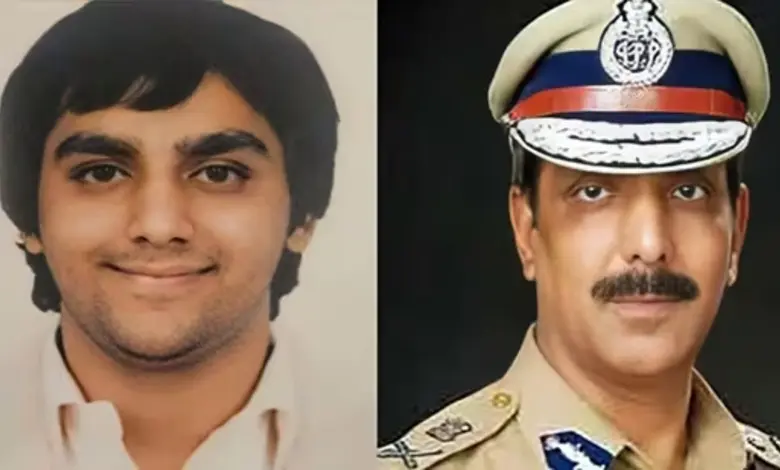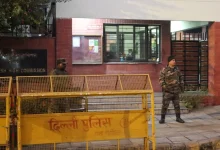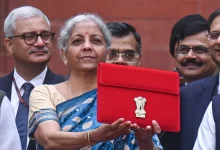Ex-DGP Blasts ‘Vile Plot’ as Police Target Family Over Son’s Overdose Demise

In a dramatic escalation of an already convoluted family tragedy, Haryana Police have filed charges against retired Punjab Director General of Police Mohammad Mustafa and his wife, former minister Razia Sultana, accusing them of involvement in the death of their 35-year-old son, Aqil Akhtar. The case, which initially appeared to be a straightforward overdose, has veered into contentious territory following Aqil’s haunting social media posts alleging betrayal and threats from his own kin.
Mustafa, speaking out mere hours after the FIR was lodged at Panchkula’s MDC police station, vehemently rejected the claims as politically motivated fabrications. “The mere filing of an FIR does not equate to proven guilt,” he told reporters, as reported by Hindustan Times. He vowed that a genuine investigation would soon expose the “truth” and held that those behind the complaint—based on what he called “baseless allegations”—should brace for legal repercussions. Labeling the move as “dirty politics and cheap thinking,” Mustafa emphasized his family’s profound grief over Aqil’s loss but insisted they would not stand idly by against such “vile actions.”
Aqil was discovered unresponsive at his Sector 4 home in Panchkula on October 15 and pronounced dead on arrival at a nearby hospital. An initial post-mortem suggested no foul play, attributing the death to an overdose of buprenorphine, a substance tied to his long battle with addiction. The body was released to relatives without further scrutiny at the time. However, the narrative shifted dramatically when videos and posts Aqil shared in August resurfaced, prompting a formal complaint from Shamshudeen Chaudhary, a Malerkotla resident and family acquaintance.
In those recordings, Aqil voiced deep paranoia and anguish, claiming he had uncovered an affair between his father and wife, leaving him in “a lot of stress and mental trauma.” He warned, “I feel every day that they will frame me in a false case,” and accused his mother, Razia Sultana, and sister of conspiring to either jail him falsely or eliminate him outright. One clip captured him lamenting an alleged illegal confinement to a rehabilitation center, where he said his family dismissed him as “mentally unstable” and threatened to implicate him in fabricated crimes like rape or murder.
Chaudhary, who once aligned with the Shiromani Akali Dal before shifting toward Aam Aadmi Party circles in Malerkotla, held a press conference to highlight these posts. He described limited interactions with Aqil near the family’s Malerkotla residence but denied ongoing political ties, noting he had been sidelined by AAP about 18 months prior. The complaint extended accusations to Mustafa’s daughter and daughter-in-law, prompting authorities to form a Special Investigation Team (SIT) led by an assistant commissioner of police.
Panchkula Deputy Commissioner of Police Srishti Gupta affirmed the probe’s impartiality, stating the SIT would approach the matter “with an open mind and without prejudice,” ensuring “no guilty person is spared and no innocent person suffers.” The team is scrutinizing the social media evidence, videos, and photos that ignited suspicions.
Countering the narrative, Mustafa painted a starkly different picture of Aqil’s tormented life. The former DGP, who retired in 2021 and later joined the Congress party, revealed his son had grappled with drug dependency since his mid-teens, starting around Class 10 at Welham Boys’ School in Dehradun. Expelled from several Chandigarh institutions, Aqil’s addiction escalated to psychotropic substances and, eventually, harder drugs like ICE, leading to repeated relapses despite exhaustive treatment efforts at facilities including PGIMER Chandigarh since 2007.
“He would not even remember the date or time when he recorded a particular video and would later retract his words after some hours,” Mustafa explained, as quoted by The Indian Express. The ex-officer recounted harrowing incidents: Aqil setting their home ablaze, assaulting security personnel to the point they quit, attacking Chandigarh police, and relentlessly harassing his mother and wife for drug money. Multiple complaints were lodged in Panchkula but withdrawn out of familial loyalty. To shield Aqil’s wife and their two young children, the family rented a separate home, though Mustafa lamented the toll it took—his grandson even spiraled into depression witnessing the abuse.
“My grandson went into depression seeing how his mother was tortured by my son,” Mustafa said. “Those raising a finger at my daughter-in-law have no idea what all she has been through.” He stressed Aqil’s de-addiction records as verifiable and welcomed a full inquiry, attributing the erratic posts to psychosis-fueled delusions rather than reality.
Aqil’s final video offered a partial retraction, blaming his outbursts on mental illness, yet it cut off ominously: “Will they get me killed? They are all scoundrels.” Razia Sultana, a three-time Malerkotla MLA and cabinet minister from 2017 to 2022, has remained silent amid the uproar.
As the SIT delves deeper, this case underscores the blurred lines between personal torment, addiction’s grip, and public scrutiny—leaving a prominent family fractured and a community gripped by unanswered questions.




